Alliance of Liberals and Democrats for Europe Party
The Alliance of Liberals and Democrats for Europe Party (ALDE Party) is a European political party composed of 60 national-level liberal parties from across Europe, mainly active in the European Union. The ALDE Party is affiliated with the Liberal International and a recognised European political party, incorporated as a non-profit association under Belgian law.[2]
Alliance of Liberals and Democrats for Europe Party | |
|---|---|
 | |
| Abbreviation | ALDE Party |
| President | Hans van Baalen |
| Secretary-General | Jacob Moroza-Rasmussen |
| Founded | 26 March 1976 |
| Headquarters | Rue d'Idalie 11, Brussels, Belgium |
| Think tank | European Liberal Forum |
| Youth wing | European Liberal Youth |
| Ideology | Liberalism[1] Pro-Europeanism |
| Political position | Centre |
| International affiliation | Liberal International |
| European Parliament group |
|
| Colours | |
| European Parliament | 68 / 705 |
| European Council | 6 / 27 |
| European Commission | 5 / 27 |
| European Lower Houses | 723 / 9,874 |
| European Upper Houses | 244 / 2,714 |
| Website | |
| www | |
It was founded on 26 March 1976 in Stuttgart as a confederation of national political parties under the name "Federation of Liberal and Democrat Parties in Europe" and renamed "European Liberals and Democrats" (ELD) in 1977 and "European Liberal Democrats and Reformists" (ELDR) in 1986. On 30 April 2004, the ELDR was reformed as an official European party, the "European Liberal Democrat and Reform Party" (ELDR Party).[3]
On 10 November 2012, the party chose its current name of ALDE Party, taken from its then-European Parliament group, the Alliance of Liberals and Democrats for Europe (ALDE), which had been formed on 20 July 2004 in conjunction with the European Democratic Party (EDP). Prior to the 2004 European election the European party had been represented through its own group, the European Liberal Democrat and Reform Party Group (ELDR) Group. In June 2019, the ALDE group was succeeded by Renew Europe.
As of 2020, ALDE is represented in European Union institutions, with 65 MEPs and five members of the European Commission. Of the 27 EU member states, there are six with ALDE-affiliated Prime Ministers: Mark Rutte (VVD) in the Netherlands, Xavier Bettel (DP) in Luxembourg, Kaja Kallas (Estonian Reform Party) in Estonia, Andrej Babiš (ANO) in the Czech Republic, Alexander De Croo (Open VLD) in Belgium and Micheál Martin (FF) in Ireland. ALDE member parties are also in governments in four other EU member states: Croatia, Finland, Latvia and Slovenia. Some other ALDE member parties offer parliamentary support to governments in Croatia, Denmark, Italy, Romania and Sweden. Charles Michel, former Belgian Prime Minister, is current President of the European Council.
ALDE's think tank is the European Liberal Forum, led by Hilde Vautmans, MEP, and gathers 46 member organisations. The youth wing of ALDE is the European Liberal Youth (LYMEC), which is predominantly based upon youth and student liberal organisations but contains also a small number of individual members. LYMEC is led by Antoaneta Asenova (MRF) of Bulgaria, and counts 200,000 members.
Structure
| Part of a series on |
| Liberalism |
|---|
 |
|
Bureau
The day-to-day management of the ALDE Party is handled by the Bureau, the members of which are:[4]
| Office | Name | State member | Party member |
|---|---|---|---|
| President | Hans van Baalen | VVD | |
| Vice-Presidents | Henrik Bach Mortensen | Venstre | |
| Dita Charanzová MEP | ANO | ||
| Senator Timmy Dooley | FF | ||
| Baroness Sal Brinton | LibDem | ||
| Luis Garicano MEP | Cs | ||
| Ilhan Kyuchyuk MEP | MRF | ||
| Daniel Berg | M | ||
| Annelou van Egmond | D66 | ||
| Alexander Graf Lambsdorff | FDP | ||
| Treasurer | Gašper Koprivšek | SMC | |
| Ex officio members | |||
| Secretary-General | Jacob Moroza-Rasmussen | Venstre | |
| President of Liberal International | Hakima El Haite | / (MP) | |
| Group Chair in the PACE | Jacques Maire MP | / (LREM) | |
| Leader in the European Parliament | Dacian Cioloș MEP | PLUS | |
| Leader in the European Committee of the Regions | François Decoster | / | |
| President of the European Liberal Forum | Hilde Vautmans | Open VLD | |
| President of the European Liberal Youth | Antoaneta Asenova | MRF | |
Presidents
- 1978–1981:
 Gaston Thorn
Gaston Thorn - 1981–1985:
.svg.png.webp) Willy De Clercq
Willy De Clercq - 1985–1990:
 Colette Flesch
Colette Flesch - 1990–1995:
.svg.png.webp) Willy De Clercq
Willy De Clercq - 1995–2000:
 Uffe Ellemann-Jensen
Uffe Ellemann-Jensen - 2000–2005:
 Werner Hoyer
Werner Hoyer - 2005–2011:
.svg.png.webp) Annemie Neyts-Uyttebroeck
Annemie Neyts-Uyttebroeck - 2011–2015:
 Graham Watson
Graham Watson - 2015–present:
 Hans van Baalen
Hans van Baalen
History of pan-European liberalism

Pan-European liberalism has a long history dating back to the foundation of Liberal International in April 1947. On 26 March 1976, the Federation of Liberal and Democrat Parties in Europe was established in Stuttgart. The founding parties of the federation were the Free Democratic Party of Germany, Radical Party of France, Venstre of Denmark, Italian Liberal Party, Dutch People's Party for Freedom and Democracy and Democratic Party of Luxembourg.[5] Observer members joining later in 1976 were the Danish Social Liberal Party, French Radical Party of the Left and Independent Republicans, British Liberal Party, and Italian Republican Party.[5] In 1977, the federation was renamed European Liberals and Democrats, in 1986, European Liberal Democrats and Reformists.
It evolved into the European Liberal Democrat and Reform Party (ELDR Party) in 2004, when it was founded as an official European party under that name and incorporated under Belgian law at an extraordinary Congress in Brussels, held on 30 April 2004 the day before the enlargement of the European Union. At the same time the matching group in the European Parliament, the European Liberal Democrats and Reformists Group allied with the members of the newly elected European Democratic Party, forming the Alliance of Liberals and Democrats for Europe (ALDE) with a matching ALDE Group in the European Parliament.
On 10 November 2012, the ELDR Party adopted the name of the alliance between the two parties, to match the parliamentary group and the alliance.
On 12 June 2019, the ALDE group was succeeded by a new enlarged group, Renew Europe, which primarily consists of ALDE and EDP member parties and France's La République En Marche! (LREM).[6]
European Council
| Member | Representative | Political party | Member since | Photo |
|---|---|---|---|---|
| Prime Minister | VVD | 14 October 2010 | .jpg.webp) | |
| Prime Minister | DP | 4 December 2013 | _CROP_BETTEL.jpg.webp) | |
| Prime Minister | Reform Party | 26 January 2021 |  | |
| Prime Minister | ANO | 6 December 2017 | 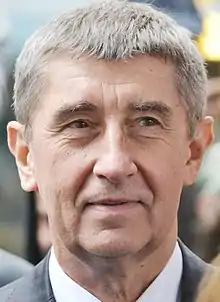 | |
| Prime Minister | MR | 27 October 2019 | 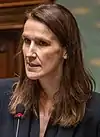 | |
| Taoiseach | FF | 27 June 2020 | .jpg.webp) | |
| President | MR (ALDE) | 1 December 2019 | .jpg.webp) | |
European Commissioners
ALDE Member Parties contribute four out of the 28 members of the European Commission:
| State | Commissioner | Portfolio | Political party | Photo |
|---|---|---|---|---|
| Margrethe Vestager | A Europe Fit for the Digital Age,
Commissioner |
RV | .jpg.webp) | |
| Věra Jourová | Values and Transparency,
Vice President |
ANO | 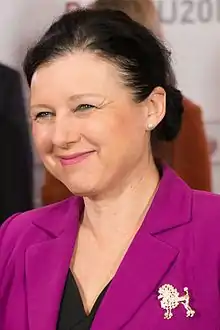 | |
| Janez Lenarčič | Crisis Management,
Commissioner |
Ind. | _-_Crisis_management_(48833246092)_(cropped).jpg.webp) | |
| Kadri Simson | Energy,
Commissioner |
KESK | .jpg.webp) | |
| Didier Reynders | Justice,
Commissioner |
MR | (cropped).jpg.webp) |
Elected representatives of member parties
European institutions
| Organisation | Institution | Number of seats |
|---|---|---|
| European Commission | 5 / 27 | |
| European Council (Heads of Government) | 6 / 27 | |
| Council of the EU (Participation in Government) | 10 / 27 | |
| European Parliament | 65 / 705 | |
| Parliamentary Assembly | 28 / 318 |
National parliaments of European Union member states
| Country | Institution | Number of seats | Member parties | Status | |
|---|---|---|---|---|---|
| National Council | 15 / 183 | NEOS | Opposition | ||
| Chamber of Representatives Lower house | 26 / 150 | MR | 14 / 26 |
Government | |
| Open Vld | 12 / 26 |
Government | |||
| Senate Upper house | 11 / 60 | MR | 6 / 11 |
Government | |
| Open Vld | 5 / 11 |
Government | |||
| National Assembly | 25 / 240 | MRF | Opposition | ||
| Sabor | 9 / 151 | HNS | 1 / 12 |
Government | |
| HSLS | 2 / 9 |
Support | |||
| Glas | 1 / 9 |
Opposition | |||
| IDS-DDI | 3 / 9 |
Opposition | |||
| Centre | 2 / 19 |
Opposition | |||
| Chamber of Deputies Lower house | 78 / 200 | ANO | Government | ||
| Senate Upper house | 7 / 81 | ANO | Government | ||
| Folketing | 58 / 175 |
RV | 16 / 58 |
Support | |
| V | 42 / 58 |
Opposition | |||
| State Council | 59 / 101 | EK | 25 / 59 |
Government | |
| ER | 34 / 59 |
Opposition | |||
| Parliament | 41 / 200 | Kesk | 31 / 41 |
Government | |
| SFP | 10 / 41 |
Government | |||
| National Assembly Lower house | 36 / 577 | UDI | 18 / 36 |
Opposition | |
| MR | 18 / 36 |
Opposition | |||
| Senate Upper house | 46 / 348 | UDI | 31 / 46 |
Opposition | |
| MR | 15 / 46 |
Opposition | |||
| Bundestag | 80 / 631 | FDP | Opposition | ||
| Országgyűlés | 1 / 199 | Liberálisok | 1 / 1 |
Opposition | |
| M | 0 / 1 |
Extraparliamentary | |||
| Dáil Lower house | 37 / 160 | FF | Government | ||
| Seanad Upper house | 20 / 60 | FF | Government | ||
| Chamber of Deputies Lower house |
2 / 630 |
RI, +E | Support | ||
| Senate of the Republic Upper house | 1 / 315 | RI, +E | Support | ||
| Seimas | 23 / 141 | LRLS | 12 / 33 |
Government | |
| Freedom Party | 11 / 33 |
Government | |||
| Saeima | 13 / 100 | A/Par! | Government | ||
| Chamber of Deputies | 12 / 60 | DP | Government | ||
| House of Representatives Lower house | 51 / 150 | VVD | 39 / 51 |
Government | |
| D66 | 19 / 51 |
Government | |||
| Senate Upper house | 19 / 75 | VVD | 12 / 19 |
Government | |
| D66 | 7 / 19 |
Government | |||
| Sejm Lower house | 8 / 460 | .Nowoczesna | Opposition | ||
| Senat of Poland Upper house | 1 / 100 | .Nowoczesna | Opposition | ||
| Assembly of the Republic | 1 / 230 | IL | Opposition | ||
| Chamber of Deputies Lower house | 38 / 330 | USR | Government coalition | ||
| Senate Upper house | 17 / 136 | USR | Government coalition | ||
| National Council | 0 / 150 | PS | Extraparliamentary | ||
| National Assembly | 27 / 90 | SMC | 8 / 27 |
Government | |
| LMŠ | 14 / 27 |
Opposition | |||
| SAB | 5 / 27 |
Opposition | |||
| Congress of Deputies Lower house | 10 / 350 | Cs | Opposition | ||
| Senate Upper house | 8 / 266 | Cs | Opposition | ||
| Riksdag | 50 / 349 | C | 31 / 50 |
Support | |
| L | 19 / 50 |
Support | |||
National parliaments outside the European Union
| Country | Institution | Number of seats | Member parties |
|---|---|---|---|
| General Council | 4 / 28 | PLA | |
| National Assembly | 17 / 132 | ANC, Bright Armenia | |
| National Assembly | 0 / 125 | Musavat | |
| House of Representatives | 4 / 42 | Naša Stranka | |
| Parliament | 0 / 150 | Republican, FD | |
| Althing | 4 / 63 | Viðreisn | |
| Parliament | 0 / 101 | PL | |
| Assembly | 1 / 81 | LPCG | |
| Storting | 8 / 169 | Venstre | |
| National Council Lower house | 45 / 200 | FDP, GLP | |
| Council of States Upper house | 12 / 46 | FDP | |
| Verkhovna Rada | 20 / 450 | Voice | |
| House of Commons Lower house | 12 / 650 | Liberal Democrats, Alliance | |
| House of Lords Upper house | 94 / 775 | Liberal Democrats | |
| Gibraltar Parliament unicameral | 3 / 17 | Libs |
Member parties
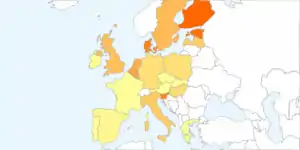
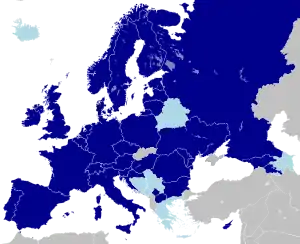
Outside the EU
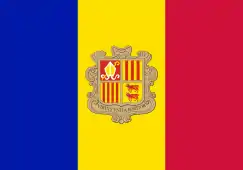 Liberal Party of Andorra
Liberal Party of Andorra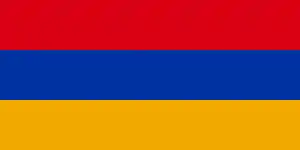 Armenian National Congress
Armenian National Congress Bright Armenia
Bright Armenia Musavat
Musavat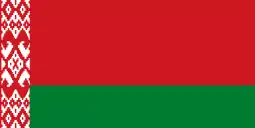 Liberal Party of Freedom and Progress
Liberal Party of Freedom and Progress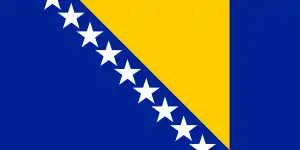 Liberal Democratic Party
Liberal Democratic Party Our Party
Our Party Free Democrats
Free Democrats Republican Party of Georgia
Republican Party of Georgia Reform Party
Reform Party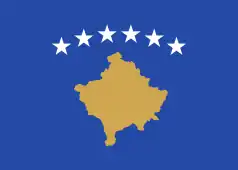 New Kosovo Alliance
New Kosovo Alliance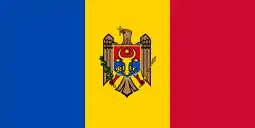 Liberal Party
Liberal Party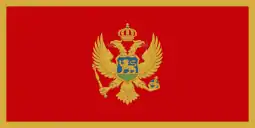 Liberal Party of Montenegro
Liberal Party of Montenegro Liberal Democratic Party
Liberal Democratic Party Liberal Party
Liberal Party People's Freedom Party
People's Freedom Party Yabloko
Yabloko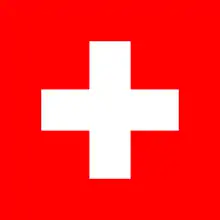 FDP.The Liberals
FDP.The Liberals Green Liberal Party of Switzerland[7]
Green Liberal Party of Switzerland[7] Civil Position
Civil Position European Party of Ukraine
European Party of Ukraine Syla Lyudey
Syla Lyudey Voice
Voice Liberal Democrats
Liberal Democrats Alliance Party of Northern Ireland
Alliance Party of Northern Ireland Liberal Party of Gibraltar
Liberal Party of Gibraltar
See also
- European Liberal Youth
- Liberal International
- Political parties of the world
References
- Nordsieck, Wolfram (2019). "European Union". Parties and Elections in Europe. Archived from the original on 8 June 2017. Retrieved 30 May 2019.
- "Archived copy". Archived from the original on 13 November 2013. Retrieved 13 November 2013.CS1 maint: archived copy as title (link)
- "European Liberal Democrats change party name to ALDE Party | ALDE Party". Eldr.eu. Archived from the original on 13 February 2013. Retrieved 23 September 2013.
- "ALDE-party Bureau".
- Dimitri Almeida (2012). The Impact of European Integration on Political Parties: Beyond the Permissive Consensus. Taylor & Francis. pp. 102–103. ISBN 978-1-136-34039-0.
- "Macron-Liberal alliance to be named Renew Europe". Politico. 12 June 2019.
- "ALDE Party Council meets in Zürich". ALDE. 28 June 2019.
External links
| Wikimedia Commons has media related to Alliance of Liberals and Democrats for Europe Party. |
